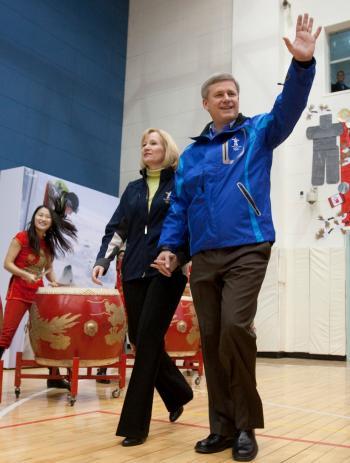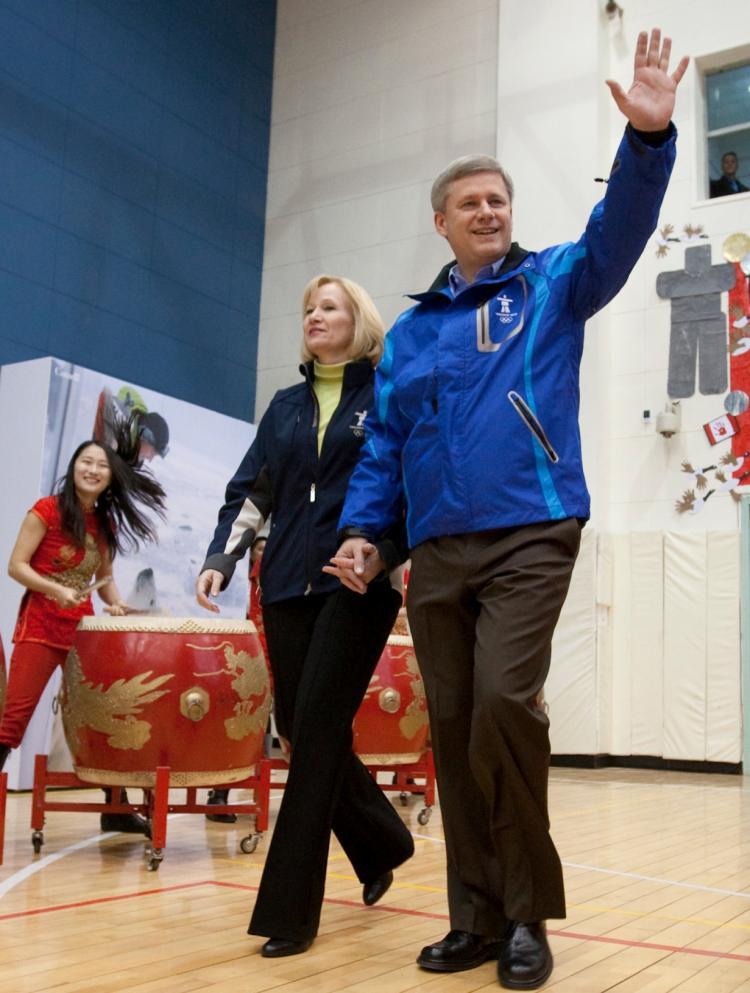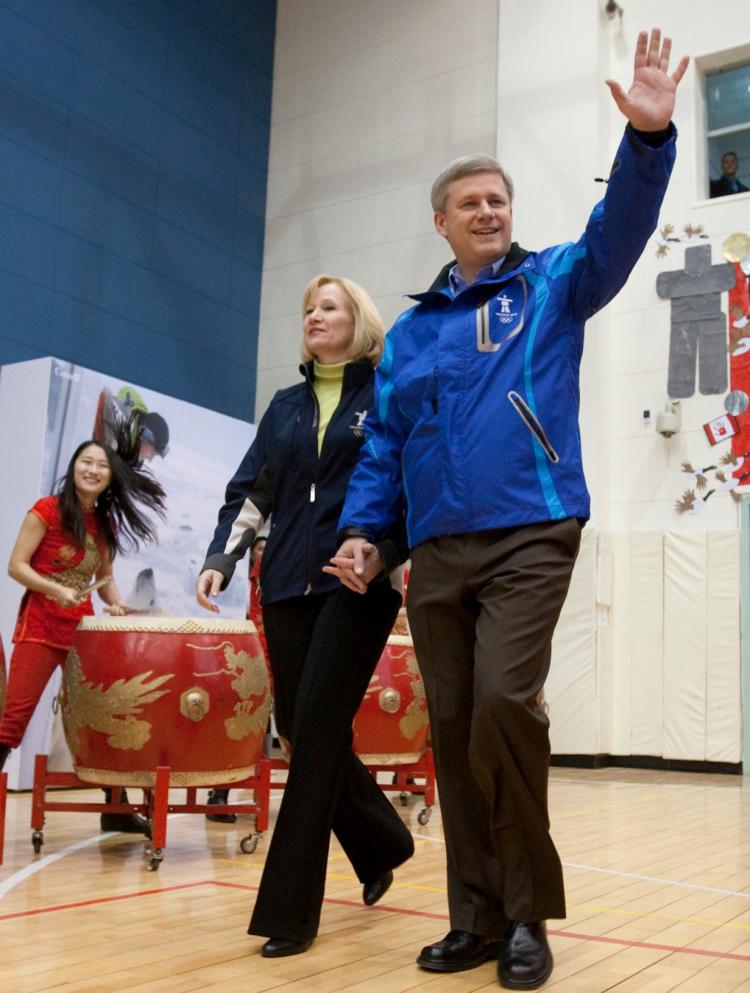On Harper and China: What Exactly Is Wrong With Raising Human Rights?
The Canadian PM is rebuked in China, then some in Canada blame their leader. Why not censure the oppressors? activists ask.

Prime Minister Stephen Harper and his wife, Laureen, visit with students at the Canadian International School of Beijing. PMO photo by Jill Propp
|Updated:






